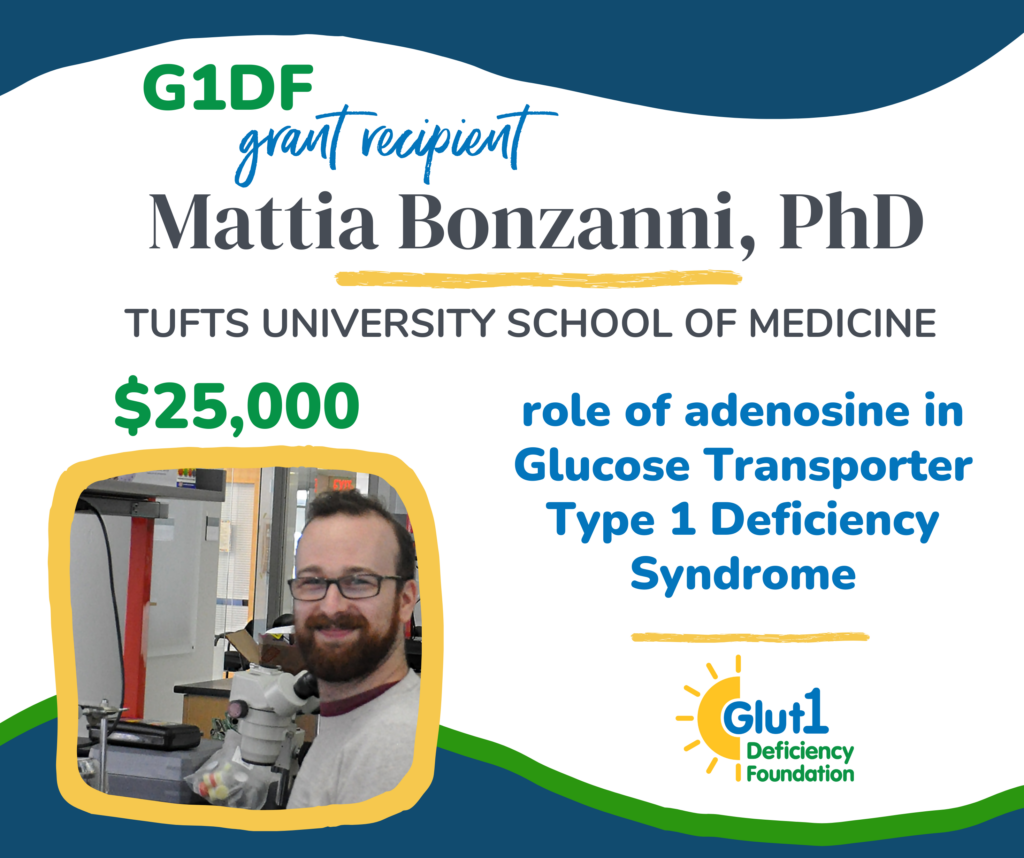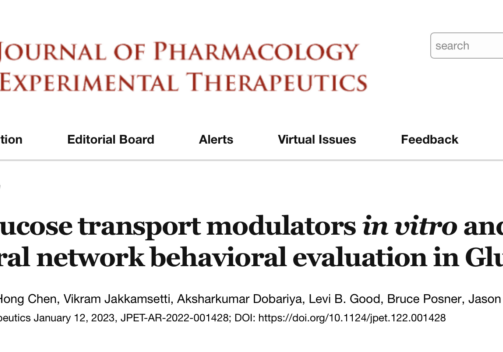New Research Grant Award – Mattia Bonzanni, PhD

The Glut1 Deficiency Foundation is pleased to announce a $25,000 research grant to Dr. Mattia Bonzanni of the Department of Neuroscience at Tufts University School of Medicine to study the role of adenosine in Glucose Transporter Type 1 Deficiency Syndrome. Adenosine is a naturally occurring chemical in every cell of the body, and it plays a role in multiple processes, including how neurons, astrocytes, and other cells function and communicate, and it acts as a metabolic fuel and sensor. This project helps address one of the key questions in our Research Compass.
The G1DF is grateful to Dr. Bonzanni for his interest in helping better understand Glut1 Deficiency and identify pathways to potential new treatments, and we are also incredibly thankful to our donors who make projects like this possible.
Learn more about Dr. Bonzanni’s project in the abstract below.
Our understanding of the consequences of reduced brain glucose uptake on neuronal activity remains limited. GLUT1 deficiency syndrome (DS) is a genetic disease characterized by severe electrophysiological phenotypes in response to a decreased level of GLUT1 glucose transporter. Neuronal excitability is regulated by glucose catabolism, which serves not only as an energy source but also as a supplier of metabolites that fuel neurotransmitter (i.e., GABA, glycine and glutamate) and neuromodulator (i.e., ATP/adenosine, L-Serine/D-Serine, lactate) pathways. Among these modulators, the ATP/adenosine system plays a significant role in sensing the brain’s energetic state and influencing neuronal activity. In fact, adenosine not only modulates the activity of neurons, but it is a major signaling nucleoside that orchestrates cellular and tissue adaptation under energy depletion and ischemic/hypoxic conditions. Despite a circuit-specific correlation between glucose and adenosine levels having been described, it remains to be determined the specific influence of GLUT1-dependent glucose uptake on adenosine tone and its consequent impact on neuronal excitability. The objective of this proposal is to investigate whether the levels of adenosine are influenced by GLUT1-dependent glucose transport. By using ex vivo hippocampal brain slice electrophysiological recordings, we will investigate the net synaptic transmissions and adenosine tone in an acute pharmacological model of GLUT-1 deficiency and in a murine model of GLUT1 DS. The first model will clarify the astrocytic GLUT1-dependent regulation of neuronal activity and adenosine tone, while the second model will also incorporate the neurodevelopmental consequences of GLUT1 DS. Following successful collection of the proposed preliminary data, we hope to further study the relationship between GLUT1-dependent glucose transport and other neuromodulators such as D-Serine, glycine, GABA, glutamate and lactate in the context of physiology and GLUT1 DS.



